200 Famous Time Quotes

The Nature and Concept of Time
Time is one of the most fundamental yet enigmatic aspects of human existence. It is a concept that has fascinated philosophers, scientists, and thinkers for centuries. From the ancient Greeks to modern physicists, time has been dissected, debated, and discussed in countless ways. This section delves into the philosophical reflections on time, exploring its essence and perception, as well as the relentless flow that governs our lives.
Philosophical Reflections on Time
Philosophers have long pondered the nature of time, attempting to define and understand its essence. Is time an external reality, or is it a construct of the human mind? How does our perception of time shape our experiences and existence? This subsection explores some of the most profound reflections on time, offering insights into its elusive and complex nature.
US Time Statistics
Data Retrieved From: https://www.bls.gov/
Albert Einstein: “Time is an illusion.”
Einstein’s theory of relativity revolutionized our understanding of time, suggesting that time is not a fixed entity but rather a relative concept that can vary depending on the observer’s speed and gravitational field. This quote encapsulates the idea that time, as we perceive it, may not be the absolute, linear progression we assume it to be. Instead, it challenges us to consider that our experience of time might be more subjective than we realize.
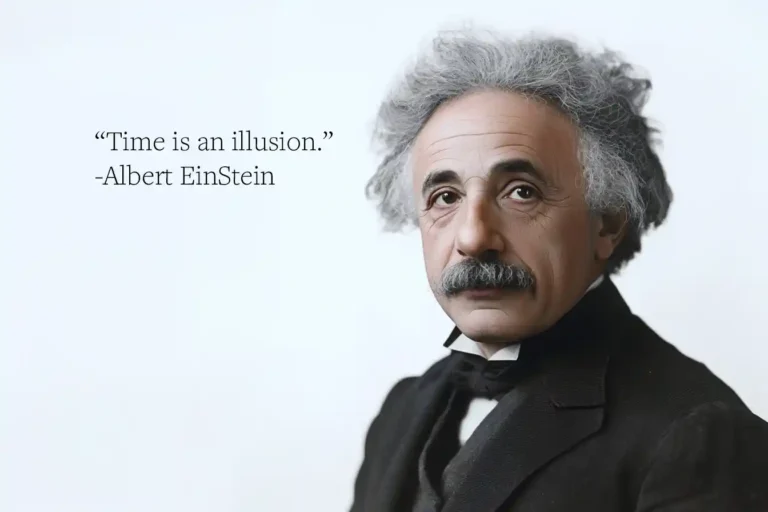
Time Dilation Calculator
0.50 cThe above Time Dilation Calculator is a tool designed to help you visualize the effects of time dilation as described in Einstein’s theory of special relativity. Time dilation occurs when an object approaches the speed of light, causing time to slow down relative to an observer at rest. This calculator lets you adjust the speed of an object as a fraction of the speed of light and see how time stretches for that object compared to someone who remains stationary. As the object’s speed gets closer to the speed of light, the difference in time becomes more pronounced, showing how time can nearly stop from the perspective of the moving object. This concept is a cornerstone of understanding space travel, high-speed motion, and the behavior of objects in the universe.
Charles Caleb Colton: “Time is the most undefinable yet paradoxical of things; the past is gone, the future is not come, and the present becomes the past even while we attempt to define it.”
Colton’s reflection highlights the paradoxical nature of time. The past is a memory, the future a possibility, and the present is fleeting, transforming into the past in an instant. This quote emphasizes the difficulty in pinning down time, as it constantly slips through our fingers, eluding precise definition. It challenges us to contemplate the ephemeral quality of our experiences and how they are shaped by the passage of time.
Lao Tzu: “Time is a created thing. To say ‘I don’t have time’ is to say, ‘I don’t want to.’”
Lao Tzu’s perspective introduces a more introspective view of time, suggesting that time is a construct of our minds, shaped by our priorities and desires. This quote encourages us to reflect on how we allocate our time and challenges the common excuse of “not having enough time.” It implies that our experience of time is directly linked to our choices and values, urging us to take responsibility for how we spend our moments.
The Flow and Passage of Time
Time is often described as a river, flowing continuously and carrying us along with it, whether we are ready or not. The quotes in this subsection emphasize the unstoppable and relentless nature of time’s passage, reminding us that time waits for no one and that each moment is precious. These reflections inspire a sense of urgency and mindfulness, encouraging us to make the most of the time we have.
Nathaniel Hawthorne: “Time flies over us, but leaves its shadow behind.”
Hawthorne’s metaphorical description of time as a bird soaring overhead paints a vivid picture of its fleeting nature. Although time passes quickly, it leaves behind a shadow—our memories, experiences, and the consequences of our actions. This quote serves as a reminder that while we cannot hold onto time, we can appreciate the lasting impact it has on our lives and the importance of living with intention.
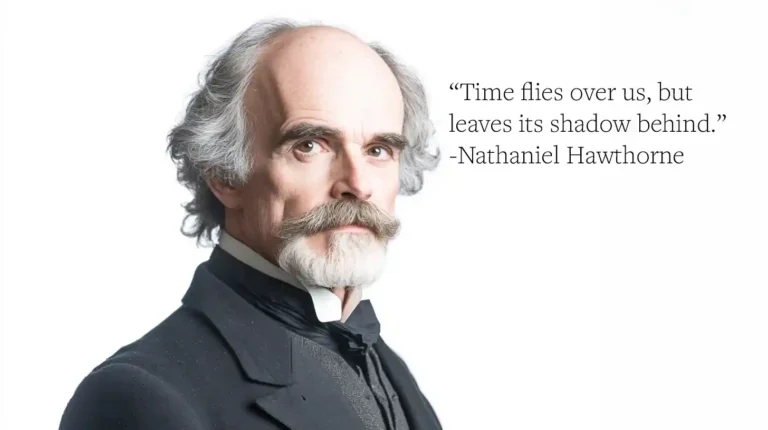
Sophocles: “The long unmeasured pulse of time moves everything.”
Sophocles, one of the great ancient Greek tragedians, likens time to a pulse that drives the movement of the world. This quote captures the unstoppable force of time, which propels all things forward, whether we are aware of it or not. It reflects the idea that time is a constant, unseen force that governs the natural order, affecting everything in its path.
C.S. Lewis: “The future is something which everyone reaches at the rate of sixty minutes an hour, whatever he does, whoever he is.”
C.S. Lewis’s quote underscores the egalitarian nature of time—no matter who we are or what we do, time moves at the same pace for everyone. It highlights the inevitability of the future, which we all approach at the same steady rate. This quote serves as a reminder that while we cannot alter the speed at which time passes, we can influence how we spend that time and what we accomplish along the way.
‘Pro-Tip’
Prioritize with a Time Budget: Just like managing finances, create a “time budget” where you allocate specific hours for tasks like meetings, client work, and strategy sessions. This helps avoid time leaks and ensures you’re focused on high-impact activities.
Time and Life
Time is intricately woven into the fabric of our lives. It is both a relentless force and a gentle teacher, guiding us through the challenges and joys of existence. This section explores how time shapes our experiences, imparts wisdom, and teaches us the value of every moment. Through the reflections of great thinkers and leaders, we gain insight into the profound relationship between time and life.
Time as Life’s Greatest Teacher
Time is often regarded as one of life’s greatest teachers. As it passes, it imparts wisdom through experiences, trials, and personal growth. It teaches us patience, resilience, and the importance of living with purpose. The quotes in this subsection highlight how time, through its passage, shapes our lives and helps us grow into better versions of ourselves.
Seneca: “Life, if well lived, is long enough.”
Seneca, a Stoic philosopher, reminds us that the quality of life is far more important than its length. This quote emphasizes the idea that a life lived with purpose, virtue, and fulfillment is sufficient, regardless of its duration. Time, when used wisely, allows us to achieve a meaningful existence. Seneca encourages us to focus on how we live our lives rather than how long we live.
Leo Tolstoy: “The two most powerful warriors are patience and time.”
Tolstoy’s quote underscores the power of patience and time as forces that can conquer almost any challenge. Patience allows us to endure hardships and navigate the complexities of life, while time brings perspective, healing, and resolution. Together, they teach us the importance of perseverance and the understanding that all things, good or bad, are transient.
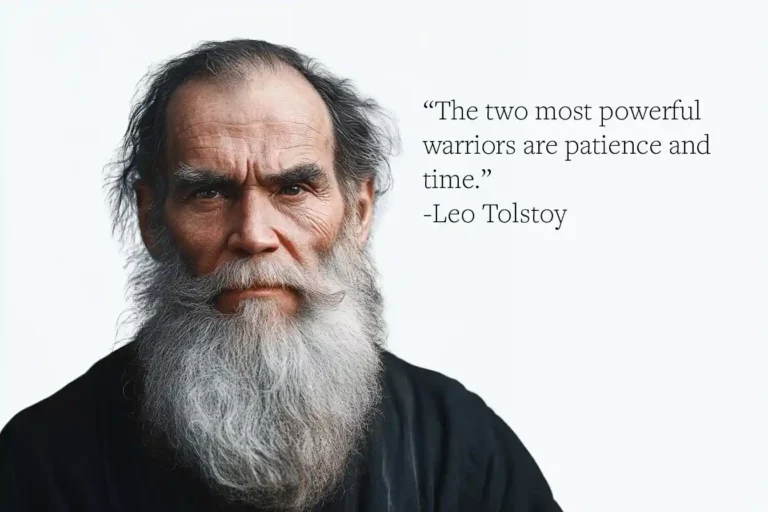
Robert H. Schuller: “Tough times never last, but tough people do.”
Schuller’s words offer a powerful reminder of the resilience that time can instill in us. Difficult periods in life are inevitable, but they are also temporary. Time, coupled with inner strength, helps us overcome challenges and emerge stronger. This quote emphasizes that while hardships may seem overwhelming in the moment, they eventually pass, leaving behind the wisdom and resilience gained from enduring them.
The Value of Time
Time is one of the most precious and finite resources we have. It cannot be bought, earned, or recovered once it is lost. Understanding the value of time is crucial for living a meaningful and fulfilling life. The following quotes reflect on the importance of recognizing time’s worth and making the most of every moment we are given.
Steve Jobs: “Your time is limited, so don't waste it living someone else's life.”
Steve Jobs’s quote is a powerful reminder of the finite nature of time and the importance of living authentically. It encourages us to pursue our own dreams and passions rather than conforming to the expectations of others. Jobs highlights the urgency of making the most of our time by being true to ourselves and our aspirations.
Theophrastus: “Time is the most valuable thing a man can spend.”
Theophrastus, an ancient Greek philosopher, succinctly captures the essence of time as a resource that surpasses all others in value. Unlike money or material possessions, time cannot be replenished once it is spent. This quote urges us to be mindful of how we use our time, recognizing that it is the most precious asset we possess.
Johann Wolfgang von Goethe: “Every second is of infinite value.”
Goethe’s reflection on time emphasizes the profound worth of each moment. This quote invites us to cherish every second, recognizing that even the smallest increments of time hold immense potential and significance. By appreciating the value of time, we are more likely to live with intention and mindfulness, making the most of our days.
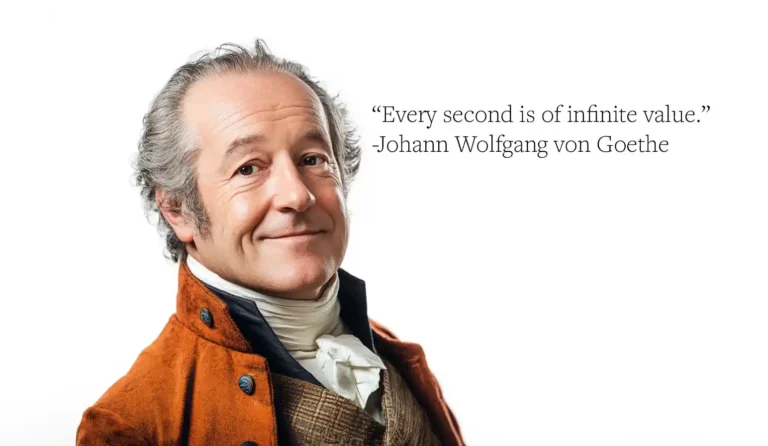
‘Pro-Tip’
Use the 80/20 Rule: Apply the Pareto Principle: 80% of your results come from 20% of your efforts. Identify and focus on the tasks that yield the highest return for your business.
Time in Relationships
Time plays a crucial role in the relationships we build throughout our lives. Whether in love, friendship, or family, the passage of time deepens connections, brings challenges, and allows relationships to evolve. This section explores how time influences romantic love and friendships, shedding light on the profound ways it impacts human connections.
Time and Love
Time and love are intertwined in a delicate dance that shapes the course of romantic relationships. Time can strengthen love, heal wounds, and create lasting memories, yet it can also test the bonds between two people. The following quotes explore the complex relationship between time and love, highlighting how time measures, enhances, and sometimes challenges romantic connections.
Jorge Luis Borges: “Being with you and not being with you is the only way I have to measure time.”
Borges beautifully captures the way love alters our perception of time. When we are with someone we love, time seems to move differently—moments together are cherished, while time apart can feel endless. This quote emphasizes how love can become the very means by which we experience and measure the passage of time, making every moment with a loved one significant.
Stephenie Meyer: “No measure of time with you will be long enough. But let’s start with forever.”
In this quote, Meyer reflects on the insatiable desire for more time with a loved one. Even a lifetime may not feel sufficient to express the depth of one’s love, yet the idea of starting with “forever” suggests an eternal commitment. This quote underscores the idea that true love transcends time, with lovers yearning for an endless journey together.
Sarah Dessen: “There is never a time or place for true love. It happens accidentally, in a heartbeat, in a single flashing, throbbing moment.”
Dessen’s quote speaks to the spontaneity and unpredictability of love. True love often arises unexpectedly, without regard for timing or circumstances. This quote highlights the idea that love is not bound by time—it can ignite in an instant, changing lives forever. It also suggests that the most profound moments of love are those that happen suddenly, without warning.
Time and Friendship
Friendships, like love, are deeply influenced by the passage of time. Time can strengthen bonds, preserve memories, and sustain connections even across distances and life changes. This subsection explores how time shapes friendships, emphasizing the enduring nature of true friendship and the importance of sharing time with those who matter most.
Tennessee Williams: “Time doesn't take away from friendship, nor does separation.”
Williams’s quote reflects the resilience of true friendship. Time and distance may change circumstances, but they do not diminish the bond between true friends. This quote suggests that genuine friendships endure despite the challenges that time may bring, emphasizing that separation does not weaken the connection but often strengthens it.
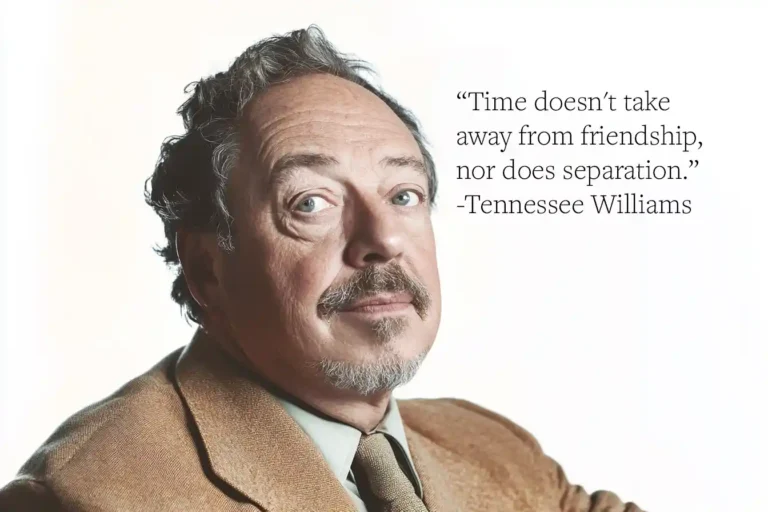
Marcel Proust: “Time, which changes people, does not alter the image we have of them.”
Proust’s reflection touches on the lasting impressions that friends leave on us. While time may change us in many ways—our appearances, our circumstances, our views—the memories and feelings we have for our friends often remain unchanged. This quote highlights the idea that friendships create indelible images in our minds, preserving the essence of those we care about, regardless of how much time has passed.
Leo Christopher: “There’s only one thing more precious than our time and that’s who we spend it on.”
Christopher’s quote underscores the importance of prioritizing the people who matter most to us. Time is our most valuable resource, and how we choose to spend it reflects our values and priorities. This quote serves as a reminder to cherish the time we have with our friends, as these relationships are the true treasures of our lives.
‘Pro-Tip’
Block Your Time: Schedule blocks of time for deep work without interruptions. This method prevents distractions and increases productivity, especially for important, long-term projects.
Time as a Resource
Time is one of the most valuable resources we possess. Unlike material resources, time is finite and irretrievable once spent. How we choose to use our time directly impacts our success, happiness, and fulfillment. This section delves into the importance of managing time efficiently and the consequences of wasting it, drawing from the wisdom of great thinkers and leaders.
Efficient Use of Time
Efficient use of time is essential for achieving our goals and making the most out of life. Time management and prioritization are key skills that allow us to focus on what truly matters, ensuring that our time is spent in ways that align with our values and aspirations. The following quotes inspire us to view time not just as something to be spent, but as an investment in our future.
Stephen R. Covey: “The key is in not spending time, but in investing it.”
Covey’s quote highlights the importance of viewing time as an investment rather than something to be spent carelessly. Just as financial investments grow and yield returns, how we choose to invest our time can lead to personal and professional growth. This quote encourages us to be deliberate and thoughtful about how we allocate our time, focusing on activities that will provide long-term benefits and fulfillment.
Thomas Jefferson: “Determine never to be idle. No person will have occasion to complain of the want of time who never loses any.”
Jefferson emphasizes the value of industriousness and the avoidance of idleness. By consistently making productive use of our time, we eliminate the common complaint of not having enough time. This quote serves as a reminder that time, when used efficiently and purposefully, can be abundant, and that our productivity is directly linked to how well we manage and utilize our time.
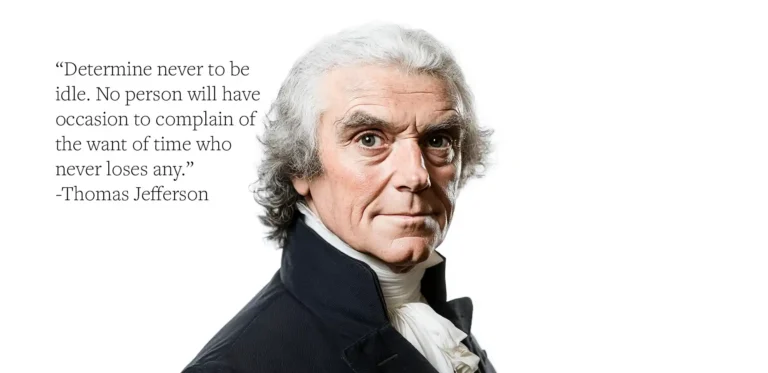
H. Jackson Brown Junior: “Don’t say you don’t have enough time. You have exactly the same number of hours per day that were given to Helen Keller, Pasteur, Michelangelo, Mother Teresa, Leonardo da Vinci, Thomas Jefferson, and Albert Einstein.”
Brown’s quote is a powerful reminder that everyone, no matter their achievements, has the same 24 hours in a day. The difference lies in how each person chooses to use that time. By invoking the names of historical figures who made significant contributions to the world, this quote inspires us to reflect on our own time management and to consider how we might use our time more effectively to achieve our goals.
Wasting Time vs. Using Time Wisely
Time, once lost, cannot be regained. The way we choose to spend our time defines our life, and wasting it can lead to regret and missed opportunities. This subsection reflects on the dangers of wasting time and the importance of using it wisely, reminding us that time is both a precious and perishable resource.
Benjamin Hoff: “You can’t save time. You can only spend it. But you can spend it wisely or foolishly.”
Hoff’s quote succinctly captures the essence of time as a resource. Time cannot be stored or saved for later use; it must be spent as it comes. The choice, therefore, lies in whether we spend our time wisely, on activities that enrich our lives, or foolishly, on things that do not contribute to our well-being or goals. This quote urges us to be mindful of our time and to make conscious decisions about how we use it.
Alan Lakein: “Time = life; therefore, waste your time and waste your life, or master your time and master your life.”
Lakein draws a direct connection between time and life itself, emphasizing that how we spend our time is a reflection of how we live our lives. Wasting time equates to wasting life, while mastering time—using it purposefully and effectively—leads to a life well-lived. This quote encourages us to take control of our time, recognizing its value in shaping the quality and direction of our lives.
Charles Darwin: “A man who dares to waste one hour of time has not discovered the value of life.”
Darwin’s quote underscores the preciousness of time and the folly of wasting even a single hour. To waste time is to fail to appreciate the finite nature of life and the opportunities that each moment presents. This quote serves as a stern reminder to value every hour and to use our time in ways that contribute to our personal growth, happiness, and success.
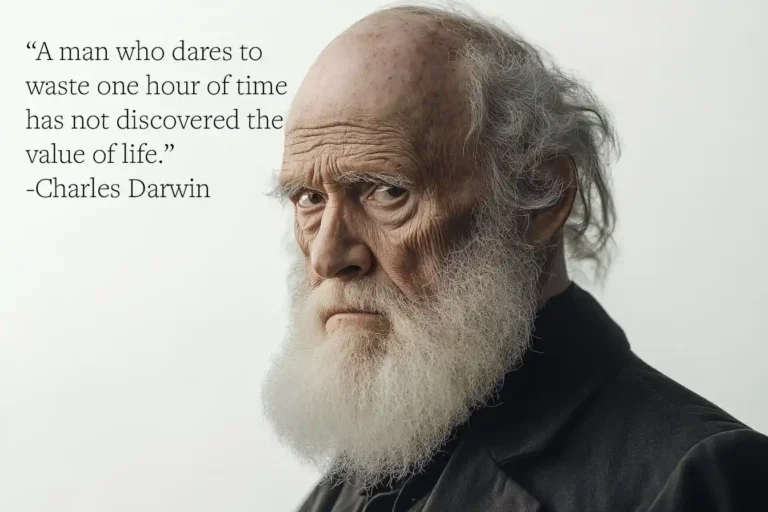
Life Expectancy Calculator
This Life Expectancy Calculator helps you estimate the number of weeks you have left based on your current age and gender. By using the average lifespan data for men (74.8 years) and women (80.2 years), the calculator provides an approximation of your remaining time. Simply input your age, select your gender, and click “Calculate Weeks Left” to receive an estimate of how many weeks you may have left to live. It’s a simple, yet thought-provoking tool designed to give a clearer perspective on time.
‘Pro-Tip’
Delegate for Efficiency: As a small business owner, don’t try to do everything yourself. Delegate routine tasks to employees or freelancers to free up your time for strategic work.
The Irreversibility of Time
Time is a force that moves in one direction—forward. It is relentless, unstoppable, and indifferent to human desires or regrets. Once a moment has passed, it can never be reclaimed, making time both a source of inevitability and a measure of life’s fleeting nature. This section explores the irreversibility of time, focusing on its inescapable march and its dual role as both healer and destroyer.
The Inescapable March of Time
Time moves forward with an unstoppable momentum, indifferent to our wishes to slow it down, pause, or reverse it. This constant forward movement defines our existence, reminding us that every moment is transient. The following quotes illustrate the inexorable nature of time, emphasizing how it continues to progress regardless of our actions or feelings.
Omar Khayyám: “The Moving Finger writes; and, having writ, Moves on: nor all thy Piety nor Wit shall lure it back to cancel half a Line, Nor all thy Tears wash out a Word of it.”
Khayyám’s verse from the Rubáiyát is a poignant reminder of the irreversible nature of time. Once an action is taken or a moment has passed, it cannot be undone, no matter how much we might wish otherwise. This quote emphasizes the finality of time’s passage, underscoring the importance of living with intention, as regrets and attempts to reverse the past are futile.
Jack Kornfield: “The trouble is, you think you have time.”
Kornfield’s quote addresses a common human fallacy—the belief that we have an abundance of time. This illusion leads us to procrastinate, delay important actions, or take time for granted. In reality, time is finite and often shorter than we anticipate, making it crucial to act with urgency and awareness. This quote serves as a wake-up call to recognize the limited nature of our time and to make the most of it.
Virgil: “All our sweetest hours fly fastest.”
Virgil’s observation captures the fleeting nature of life’s most cherished moments. Time seems to accelerate during periods of happiness and contentment, leaving us with only memories once these moments pass. This quote highlights the bittersweet reality that while time moves forward, it often feels as though the best moments are the quickest to disappear, urging us to savor them while they last.
Time as a Healer and Destroyer
Time has a dual nature—it can heal wounds and bring closure, but it can also erode, destroy, and bring about unwanted change. This subsection explores how time plays these contradictory roles, acting as both a gentle salve and a relentless force of transformation.
Rose Fitzgerald Kennedy: “Time heals all wounds. I do not agree. The wounds remain.”
Kennedy’s quote challenges the common saying that time heals all wounds. While time may lessen the intensity of pain and allow us to move forward, some wounds leave lasting scars that never fully disappear. This quote underscores the idea that time’s healing power is not absolute; it can help us cope and adapt, but it cannot completely erase deep emotional scars.
Ray Cummings: “Time is what keeps everything from happening at once.”
Cummings’s quote presents time as the organizing principle of reality, preventing the chaos of everything occurring simultaneously. Time spaces out events, allowing for sequence, causality, and the gradual unfolding of life. This quote emphasizes time’s role in structuring our experiences, making it both a force that enables healing and change and one that dictates the pace at which life occurs.
J.K. Rowling: “Time will not slow down when something unpleasant lies ahead.”
Rowling’s quote from Harry Potter and the Goblet of Fire speaks to the inevitability of facing challenges and hardships. Time does not accommodate our desires for more preparation or avoidance; it continues at its steady pace, propelling us toward whatever lies ahead. This quote reminds us that time is indifferent to our feelings and that we must confront difficulties head-on, as delaying the inevitable will not slow the passage of time.
‘Pro-Tip’
Automate Routine Processes: Use automation tools to handle repetitive tasks such as email marketing, invoicing, and scheduling. This saves valuable hours each week.
Time Management and Productivity
The ability to manage time wisely and overcome procrastination can significantly impact both our personal and professional lives. This section explores the wisdom and strategies necessary for mastering these skills, drawing from the insights of renowned thinkers and leaders.
Time Management Wisdom
Time management is more than just keeping a schedule; it is about prioritizing tasks and activities that align with our goals and values. By understanding and applying time management principles, we can make the most of each day, reduce stress, and increase productivity. The following quotes provide valuable insights into the essence of time management and the discipline required to master it.
John C. Maxwell: “Time management is an oxymoron. Time is beyond our control... Priority management is the answer to maximizing the time we have.”
Maxwell’s quote shifts the focus from the impossible task of controlling time to the more practical approach of managing priorities. By recognizing that time itself is uncontrollable, we are encouraged to focus on what we can manage—our priorities. This approach ensures that we spend our time on what truly matters, leading to a more productive and fulfilling life.
Brian Tracy: “Time management requires self-discipline, self-mastery, and self-control more than anything else.”
Tracy emphasizes that effective time management is rooted in self-discipline and self-control. It requires us to make conscious choices about how we spend our time, resisting distractions and focusing on our goals. This quote reminds us that time management is a personal responsibility that demands commitment and effort.
Peter F. Drucker: “Until we can manage time, we can manage nothing else.”
Drucker’s quote underscores the foundational importance of time management. Without the ability to manage time, all other aspects of life—work, relationships, personal growth—can become chaotic and unproductive. This quote serves as a reminder that mastering time management is a critical first step toward achieving success in any area of life.
Overcoming Procrastination
Procrastination is a common obstacle to productivity, often driven by fear, uncertainty, or a lack of motivation. Overcoming procrastination requires a shift in mindset and a commitment to taking action, even when it feels difficult. The following quotes offer powerful motivation to break free from procrastination and start making progress toward our goals.
Wayne Dyer: “Procrastination is the art of keeping up with yesterday and avoiding today.”
Dyer’s quote cleverly illustrates the futility of procrastination. By putting off tasks, we are merely clinging to the past and avoiding the present. This quote encourages us to recognize procrastination as a form of self-sabotage that prevents us from living fully in the moment and achieving our potential.
Sir Francis Bacon: “Begin doing what you want to do now. We are not living in eternity. We have only this moment, sparkling like a star in our hand, and melting like a snowflake.”
Bacon’s poetic quote emphasizes the fleeting nature of time and the urgency of taking action in the present. By reminding us that we do not have an infinite amount of time, this quote inspires us to seize the moment and begin working toward our goals without delay.
M. Scott Peck: “Until you value your time, you will not do anything with it.”
Peck’s quote highlights the importance of recognizing the value of time in order to overcome procrastination. When we truly understand how precious our time is, we are more likely to use it wisely and take action. This quote serves as a powerful reminder to appreciate the time we have and to make the most of it by pursuing our goals and dreams.
‘Pro-Tip’
Leverage Time Tracking Software: Use time-tracking tools to monitor where your time goes each day. This helps identify inefficiencies and optimize your workflow for better productivity.
Humor and Time
Time, often considered a serious and relentless force, is not without its lighter side. Humor provides a refreshing way to reflect on the concept of time, offering perspectives that range from witty observations to outright laughs. This section explores the amusing side of time, demonstrating how a touch of humor can make even the weightiest topics more approachable and enjoyable.
Funny Quotes About Time
Humor has the unique ability to make complex or daunting subjects more relatable. When it comes to time, funny quotes can help us laugh at the inevitabilities of life, such as aging, procrastination, and the passage of time itself. The following quotes provide a light-hearted take on time, reminding us not to take it all too seriously.
Robert Frost: “Time and tide wait for no man, but time always stands still for a woman of 30.”
Frost’s quote plays on the societal perceptions of aging, particularly for women, and the desire to remain ageless. This humorous observation captures the tension between the unstoppable nature of time and the human desire to pause it at certain points in life, offering a witty commentary on the cultural obsession with youth.
Lucille S. Harper: “Time is a great healer, but a poor beautician.”
Harper’s quip highlights the idea that while time may help us recover from emotional wounds, it doesn’t necessarily improve our physical appearance. This quote is a humorous reminder that while time can bring wisdom and healing, it also brings the inevitable signs of aging, which no amount of time can erase.
Sam Levenson: “I’m going to stop putting things off, starting tomorrow!”
Levenson’s quote humorously captures the essence of procrastination, a habit that many people can relate to. By promising to start something “tomorrow,” the quote pokes fun at the perpetual cycle of delays and the human tendency to avoid action in favor of future promises. It’s a clever reminder of the often absurd nature of procrastination.
Witty Insights on Time
Witty quotes about time often blend humor with cleverness, offering sharp insights that make us smile while also making us think. These quotes provide a lighter perspective on time, encouraging us to look at the clock with a grin rather than a frown.
Frank H. Knight: “Never waste any time you can spend sleeping.”
Knight’s quote humorously suggests that sleep is one of the best uses of our time. It plays on the idea that, in a world obsessed with productivity, sometimes the most productive thing we can do is rest. This quote serves as a reminder that not all time needs to be filled with activity; sometimes, it’s perfectly okay to take a break.
Oscar Levant: “So little time and so little to do.”
Levant’s quote is a tongue-in-cheek reversal of the common lament that there’s too much to do and not enough time. By flipping the script, this quote humorously exaggerates the idea of having too much free time, a situation that many might envy, but few actually experience. It’s a clever commentary on the way we perceive our time.
Jon Stewart: “Free time is death to the anxious, and thank goodness I don’t have any of it right now.”
Stewart’s quote uses humor to address the paradoxical relationship between free time and anxiety. For those prone to worry, having too much free time can lead to overthinking and stress. Stewart’s witty remark highlights how staying busy can sometimes be a blessing in disguise, helping to keep anxious thoughts at bay.
‘Pro-Tip’
Schedule Breaks: Don’t underestimate the power of short breaks. Use techniques like the Pomodoro Technique to work in bursts and refresh your mind regularly.
200 More Great Time Quotes
- Andy Warhol: “They always say time changes things, but you actually have to change them yourself.”
- Benjamin Franklin: “Lost time is never found again.”
- Lao Tzu: “To say ‘I don’t have time’ is like saying, ‘I don’t want to.’”
- Dr. Seuss: “How did it get so late so soon?”
- Mother Teresa: “Yesterday is gone. Tomorrow has not yet come. We have only today. Let us begin.”
- Eric Roth: “It’s never too late to be whoever you want to be.”
- Paulo Coelho: “Don’t waste your time with explanations: people only hear what they want to hear.”
- Kahlil Gibran: “The timeless in you is aware of life’s timelessness.”
- Heraclitus: “Time is a game played beautifully by children.”
- Cormac McCarthy: “Scars have the strange power to remind us that our past is real.”
- Jim Morrison: “The future is uncertain but the end is always near.”
- Albert Einstein: “The only reason for time is so that everything doesn’t happen at once.”
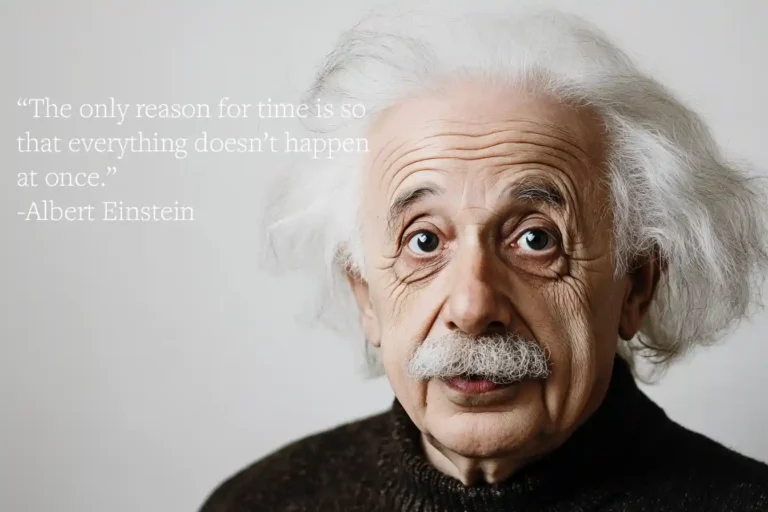
- Walt Disney: “Fantasy, if it’s really convincing, can’t become dated, for the simple reason that it represents a flight into a dimension that lies beyond the reach of time.”
- Mitch Albom: “With endless time, nothing is special.”
- Jane Austen: “It is not time or opportunity that is to determine intimacy; it is disposition alone.”
- Ray Cummings: “Time is what keeps everything from happening at once.”
- Mark Twain: “The secret of getting ahead is getting started.”
- Confucius: “The man who moves a mountain begins by carrying away small stones.”
- William Penn: “Time is what we want most, but what we use worst.”
- Leonardo da Vinci: “Time stays long enough for anyone who will use it.”
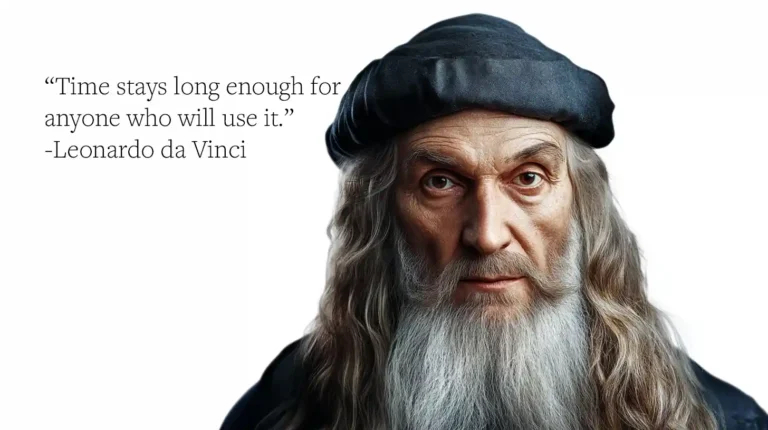
- T.S. Eliot: “There will be time, there will be time / To prepare a face to meet the faces that you meet.”
- Haruki Murakami: “The past increases, the future recedes.”
- Henry David Thoreau: “As if you could kill time without injuring eternity.”
- William Faulkner: “Clocks slay time… only when the clock stops does time come to life.”
- Fernando Pessoa: “My past is everything I failed to be.”
- Maya Angelou: “All great achievements require time.”
- Dante Alighieri: “The wisest are the most annoyed at the loss of time.”
- Philip Larkin: “Time is the echo of an axe within a wood.”
- Jean Genet: “A man must dream a long time in order to act with grandeur.”
- Susan Sontag: “All photographs are memento mori.”
- Carlos Ruiz Zafón: “Time goes faster the more hollow it is.”
- Ralph Waldo Emerson: “This time, like all times, is a very good one, if we but know what to do with it.”
- Sophocles: “Time eases all things.”
- Dostoevsky: “The mystery of human existence lies not in just staying alive, but in finding something to live for.”
- Viktor E. Frankl: “When we are no longer able to change a situation, we are challenged to change ourselves.”
- Pablo Picasso: “Only put off until tomorrow what you are willing to die having left undone.”
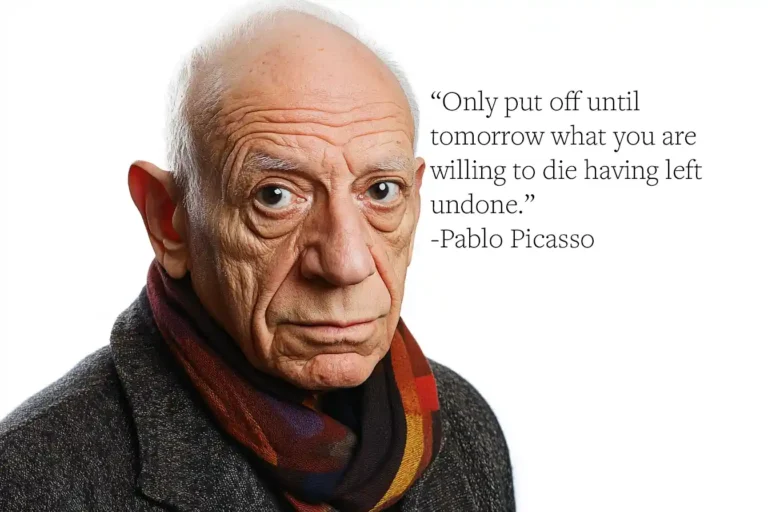
- Robert Frost: “In three words I can sum up everything I’ve learned about life: It goes on.”
- Vincent Van Gogh: “It is looking at things for a long time that ripens you and gives you a deeper meaning.”
- Stephen King: “Time takes it all, whether you want it to or not.”
- Audrey Hepburn: “The best thing to hold onto in life is each other.”
- Steve Maraboli: “Don’t waste your time in anger, regrets, worries, and grudges. Life is too short to be unhappy.”
- Helen Keller: “Life is either a daring adventure or nothing at all.”
- Fyodor Dostoevsky: “The soul is healed by being with children.”
- Thomas Mann: “Time cools, time clarifies; no mood can be maintained quite unaltered through the course of hours.”
- Simone de Beauvoir: “There is time for work, and time for love. That leaves no other time.”
- Hermann Hesse: “Time is not a thing that passes… It is a sea on which you float.”
- Ayn Rand: “Do not let your fire go out.”
- Ludwig van Beethoven: “Do not only practice your art, but force your way into its secrets.”
- Ernest Hemingway: “But man is not made for defeat.”
- William Blake: “He who binds to himself a joy / Does the winged life destroy.”
- Emily Dickinson: “Forever is composed of nows.”
- Tennessee Williams: “The future is called ‘perhaps,’ which is the only thing to call the future.”
- Virginia Woolf: “I am made and remade continually.”
- Oscar Wilde: “The truth is rarely pure and never simple.”
- Plato: “Time is the moving image of eternity.”
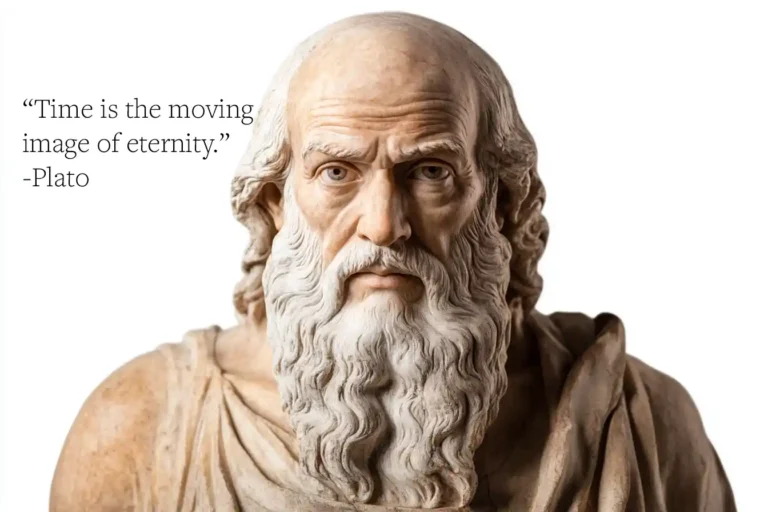
- Seneca: “The greatest obstacle to living is expectancy, which hangs upon tomorrow and loses today.”
- Jean-Paul Sartre: “Three o’clock is always too late or too early for anything you want to do.”
- James Baldwin: “People are trapped in history and history is trapped in them.”
- W.H. Auden: “To ask the hard question is simple.”
- Henry James: “Live all you can; it’s a mistake not to.”
- Eckhart Tolle: “Realize deeply that the present moment is all you will ever have.”
- Charlotte Brontë: “I try to avoid looking forward or backward, and try to keep looking upward.”
- Mary Oliver: “Tell me, what is it you plan to do with your one wild and precious life?”
- Harper Lee: “People generally see what they look for, and hear what they listen for.”
- John Steinbeck: “It is the hour of pearl—the interval between day and night when time stops and examines itself.”
- J.K. Rowling: “It does not do to dwell on dreams and forget to live.”
- Anthony Doerr: “Time is a slippery thing: lose hold of it once, and its string might sail out of your hands forever.”
- J.R.R. Tolkien: “All we have to decide is what to do with the time that is given us.”
- Nathaniel Hawthorne: “Time flies over us, but leaves its shadow behind.”
- C.S. Lewis: “You can’t go back and change the beginning, but you can start where you are and change the ending.”
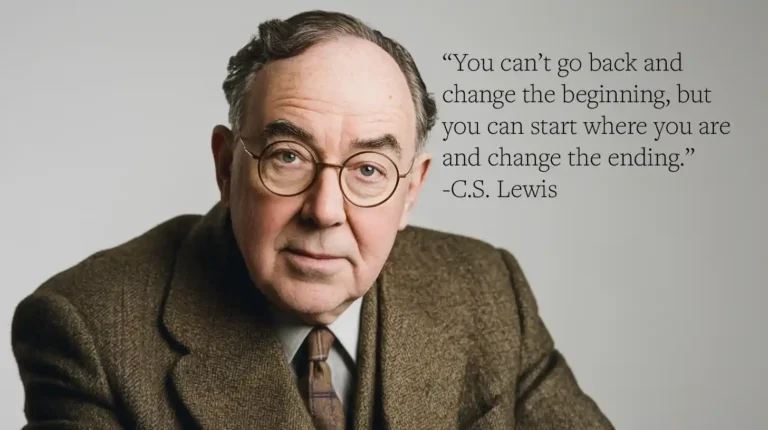
- Groucho Marx: “Time flies like an arrow; fruit flies like a banana.”
- Tom Stoppard: “Every exit is an entry somewhere else.”
- Anaïs Nin: “We write to taste life twice, in the moment and in retrospect.”
- Mark Strand: “It is not night when I do I miss you most; it is when I awake.”
- Rumi: “The wound is the place where the Light enters you.”
- James Joyce: “History…is a nightmare from which I am trying to awake.”
- Marcel Proust: “The real voyage of discovery consists not in seeking new landscapes, but in having new eyes.”
- Marilyn Monroe: “Imperfection is beauty, madness is genius.”
- Eleanor Roosevelt: “The future belongs to those who believe in the beauty of their dreams.”
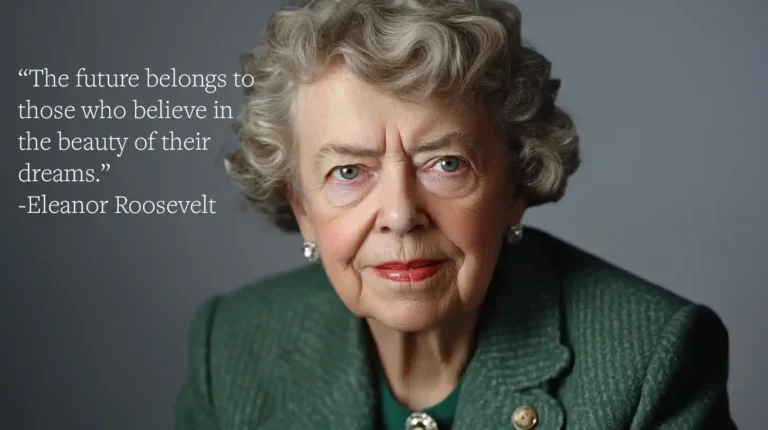
- Benjamin Disraeli: “Time is precious, but truth is more precious than time.”
- Thich Nhat Hanh: “The present moment is filled with joy and happiness. If you are attentive, you will see it.”
- Shakespeare: “Better three hours too soon than a minute too late.”
- Henry Wadsworth Longfellow: “For after all, the best thing one can do when it is raining is let it rain.”
- Harold Pinter: “One way of looking at speech is to say it is a constant stratagem to cover nakedness.”
- Stephen Hawking: “Time travel used to be thought of as just science fiction, but Einstein’s theory of relativity allows for the possibility.”
- Horace: “As we speak, cruel time is fleeing. Seize the day.”
- Edgar Allan Poe: “Years of love have been forgot, in the hatred of a minute.”
- Henry Miller: “Every moment is a golden one for him who has the vision to recognize it as such.”
- David Bowie: “Time may change me, but I can’t trace time.”
- Jeanette Winterson: “Time, like a flurry of wild rain, shall drift across the plain of our lives.”
- Aleksandr Solzhenitsyn: “It’s an universal law—intolerance is the first sign of an inadequate education.”
- Dylan Thomas: “Do not go gentle into that good night.”
- Jane Goodall: “The least I can do is speak out for those who cannot speak for themselves.”
- Toni Morrison: “You are your best thing.”
- James Baldwin: “The world is before you and you need not take it or leave it as it was when you came in.”
- Blaise Pascal: “The least movement is of importance to all nature. The entire ocean is affected by a pebble.”
- Kurt Vonnegut: “We are what we pretend to be, so we must be careful what we pretend to be.”
- Virginia Woolf: “I can only note that the past is beautiful because one never realizes an emotion at the time.”

- Max Ehrmann: “Go placidly amid the noise and haste, and remember what peace there may be in silence.”
- Oscar Wilde: “To live is the rarest thing in the world. Most people exist, that is all.”
- George Orwell: “Who controls the past controls the future. Who controls the present controls the past.”
- Mahatma Gandhi: “The future depends on what you do today.”
- T.S. Eliot: “Footfalls echo in the memory, down the passage we did not take, towards the door we never opened.”
- Albert Schweitzer: “Do something wonderful, people may imitate it.”
- Arthur Schopenhauer: “The common man is not concerned about the passage of time, the man of talent is driven by it.”
- Rabindranath Tagore: “The butterfly counts not months but moments, and has time enough.”
- M. Scott Peck: “Until you value yourself, you won’t value your time.”
- Stephen Hawking: “The past, like the future, is indefinite and exists only as a spectrum of possibilities.”
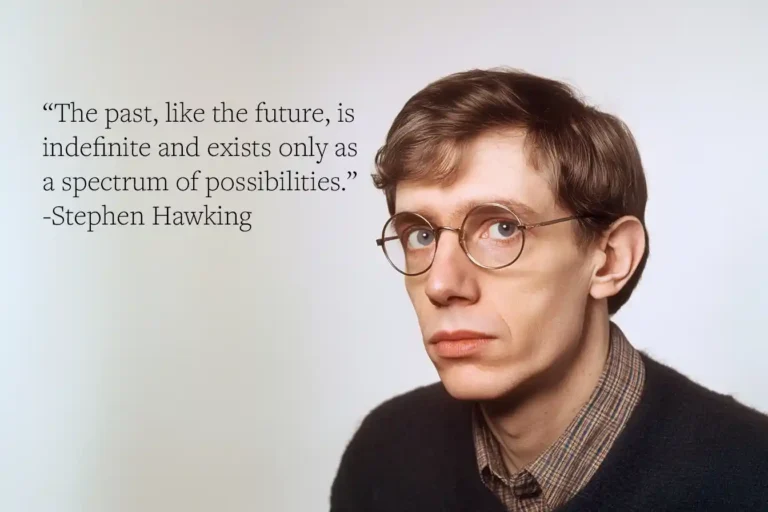
- Yoko Ono: “Spring passes and one remembers one’s innocence. Summer passes and one remembers one’s exuberance.”
- Friedrich Nietzsche: “He who has a why to live can bear almost any how.”
- Charles Darwin: “A man who dares to waste one hour of time has not discovered the value of life.”
- Bruce Lee: “If you love life, don’t waste time, for time is what life is made up of.”
- H.G. Wells: “We all have our time machines, don’t we? Those that take us back are memories… And those that carry us forward, are dreams.”
- Edna St. Vincent Millay: “Childhood is the kingdom where nobody dies.”
- Albert Camus: “Real generosity towards the future lies in giving all to the present.”
- George Bernard Shaw: “Youth is wasted on the young.”
- Douglas Adams: “Time is an illusion. Lunchtime doubly so.”
- Aldous Huxley: “Experience is not what happens to you; it’s what you do with what happens to you.”
- Jules Renard: “Laziness is nothing more than the habit of resting before you get tired.”
- Jim Rohn: “Time is more valuable than money. You can get more money, but you cannot get more time.”
- Henry Ford: “My best friend is the one who brings out the best in me.”
- George Harrison: “It’s being here now that’s important.”
- Jean-Jacques Rousseau: “Patience is bitter, but its fruit is sweet.”
- William James: “The art of being wise is the art of knowing what to overlook.”
- Franz Kafka: “Youth is happy because it has the ability to see beauty. Anyone who keeps the ability to see beauty never grows old.”
- Søren Kierkegaard: “Life can only be understood backwards; but it must be lived forwards.”
- Richard Dawkins: “We are going to die, and that makes us the lucky ones.”
- James Gleick: “We go back and forth between being time’s master and its victim.”
- Jonathan Safran Foer: “Sometimes I can hear my bones straining under the weight of all the lives I’m not living.”
- Agatha Christie: “The truth, however ugly in itself, is always curious and beautiful to seekers after it.”
- Milan Kundera: “There is a certain part of all of us that lives outside of time.”
- Lao Tzu: “Nature does not hurry, yet everything is accomplished.”
- Samuel Butler: “Life is the art of drawing sufficient conclusions from insufficient premises.”
- Anthony Robbins: “The only limit to your impact is your imagination and commitment.”
- Anaïs Nin: “Life shrinks or expands in proportion to one’s courage.”
- Doris Lessing: “That is what learning is. You suddenly understand something you’ve understood all your life, but in a new way.”
- Aeschylus: “Time brings all things to pass.”
- Miguel de Cervantes: “The truth may be stretched thin, but it never breaks, and it always surfaces above lies, as oil floats on water.”
- George Carlin: “No matter what you do, time just keeps on slipping away, doesn’t it?”
- Graham Greene: “There is always one moment in childhood when the door opens and lets the future in.”
- James Thurber: “It is better to know some of the questions than all of the answers.”
- Margaret Atwood: “Time is not a line, but a series of now-points.”
- Groucho Marx: “I’m not crazy about reality, but it’s still the only place to get a decent meal.”
- Haruki Murakami: “Memories warm you up from the inside. But they also tear you apart.”
- Ralph Waldo Emerson: “The only person you are destined to become is the person you decide to be.”
- Franklin D. Roosevelt: “The only thing we have to fear is fear itself.”
- Samuel Beckett: “Ever tried. Ever failed. No matter. Try Again. Fail again. Fail better.”
- Anaïs Nin: “We don’t see things as they are, we see them as we are.”
- Dorothy Parker: “Time doth flit; oh shit.”
- Walt Whitman: “Do I contradict myself? Very well, then I contradict myself.”
- Salvador Dalí: “The only difference between me and a madman is that I’m not mad.”
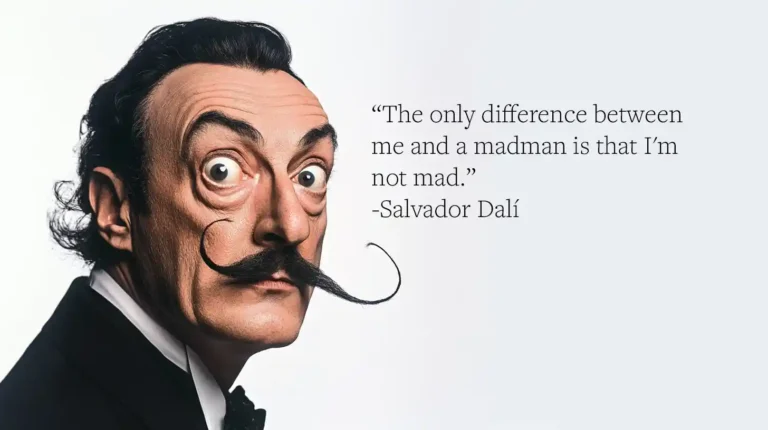
- Oscar Wilde: “Be yourself; everyone else is already taken.”
- Anne Lamott: “Almost everything will work again if you unplug it for a few minutes, including you.”
- Susan Sontag: “I haven’t been everywhere, but it’s on my list.”
- Maya Angelou: “People will forget what you said, people will forget what you did, but people will never forget how you made them feel.”
- Virginia Woolf: “You cannot find peace by avoiding life.”
- Joseph Campbell: “We must be willing to let go of the life we planned so as to have the life that is waiting for us.”
- Jean-Luc Godard: “It’s not where you take things from — it’s where you take them to.”
- Voltaire: “Judge a man by his questions rather than by his answers.”
- Rainer Maria Rilke: “The only journey is the one within.”
- Andre Gide: “Man cannot discover new oceans unless he has the courage to lose sight of the shore.”
- Victor Hugo: “Nothing is more powerful than an idea whose time has come.”
- Pablo Picasso: “Art washes away from the soul the dust of everyday life.”
- Confucius: “It does not matter how slowly you go as long as you do not stop.”
- George Eliot: “It is never too late to be what you might have been.”
- Susan Cain: “There’s zero correlation between being the best talker and having the best ideas.”
- Marilyn Monroe: “We should all start to live before we get too old. Fear is stupid. So are regrets.”
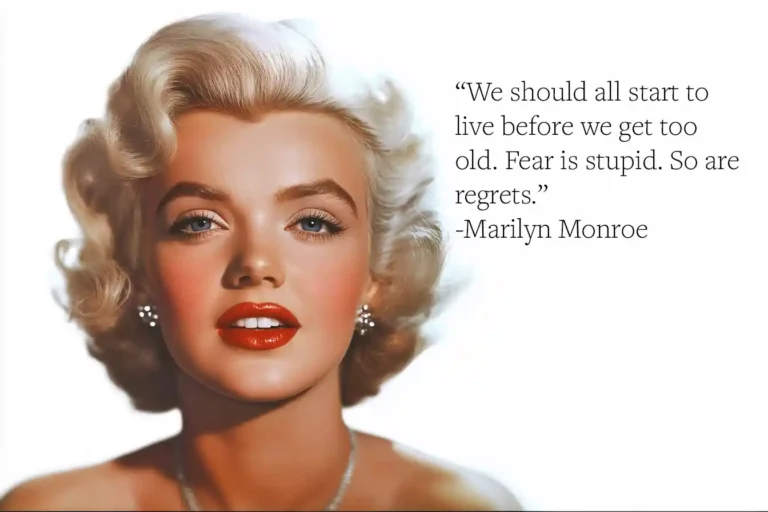
- Tom Stoppard: “Every exit is an entry somewhere.”
- Arthur Conan Doyle: “The world is full of obvious things which nobody by any chance ever observes.”
- Ernest Hemingway: “All you have to do is write one true sentence. Write the truest sentence that you know.”
- Margaret Mead: “Never doubt that a small group of thoughtful, committed citizens can change the world.”
- Haruki Murakami: “What happens when people open their hearts? They get better.”
- Christopher Morley: “There is only one success: to be able to spend your life in your own way.”
- Jorge Luis Borges: “I have always imagined that Paradise will be a kind of library.”
- Oscar Wilde: “To live is the rarest thing in the world. Most people exist, that is all.”
- Eleanor Roosevelt: “No one can make you feel inferior without your consent.”
- Albert Einstein: “Imagination is more important than knowledge. For knowledge is limited, whereas imagination embraces the entire world.”
- Emily Dickinson: “I dwell in possibility.”
- Franz Kafka: “A book must be the axe for the frozen sea within us.”
- Marcel Proust: “Happiness is beneficial for the body, but it is grief that develops the powers of the mind.”
- Carl Sagan: “Somewhere, something incredible is waiting to be known.”
- Joseph Conrad: “Being a woman is a terribly difficult trade since it consists principally of dealings with men.”
- Willa Cather: “Where there is great love, there are always miracles.”
- G.K. Chesterton: “Angels can fly because they can take themselves lightly.”
- Henry David Thoreau: “If a man does not keep pace with his companions, perhaps it is because he hears a different drummer.”
- Daphne du Maurier: “Happiness is not a possession to be prized, it is a quality of thought, a state of mind.”
- Winston Churchill: “Success is not final, failure is not fatal: It is the courage to continue that counts.”
- Simone de Beauvoir: “Change your life today. Don’t gamble on the future, act now, without delay.”
- George Washington Carver: “Where there is no vision, there is no hope.”
- Langston Hughes: “Hold fast to dreams, for if dreams die, life is a broken-winged bird that cannot fly.”
- Virginia Woolf: “One cannot think well, love well, sleep well, if one has not dined well.”
- W.B. Yeats: “There are no strangers here; Only friends you haven’t yet met.”
- Ayn Rand: “The question isn’t who is going to let me; it’s who is going to stop me.”
- Maya Angelou: “If you don’t like something, change it. If you can’t change it, change your attitude.”
- Lewis Carroll: “One of the secrets of life is that all that is really worth the doing is what we do for others.”
- William Faulkner: “You cannot swim for new horizons until you have courage to lose sight of the shore.”
- Alfred Lord Tennyson: “Tis better to have loved and lost than never to have loved at all.”
- Isaac Newton: “What we know is a drop, what we don’t know is an ocean.”
- William Wordsworth: “The best portion of a good man’s life: his little, nameless unremembered acts of kindness and love.”
- Mark Twain: “The secret of getting ahead is getting started.”
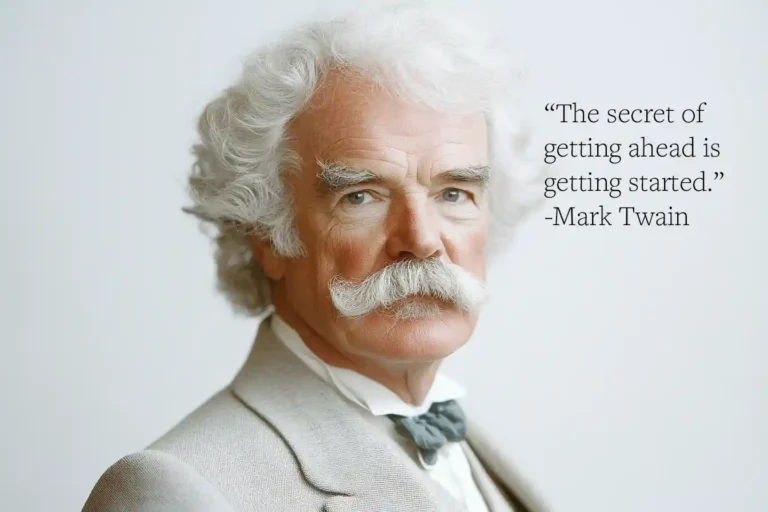
Disclaimer: The content provided on this webpage is for informational purposes only and is not intended to be a substitute for professional advice. While we strive to ensure the accuracy and timeliness of the information presented here, the details may change over time or vary in different jurisdictions. Therefore, we do not guarantee the completeness, reliability, or absolute accuracy of this information. The information on this page should not be used as a basis for making legal, financial, or any other key decisions. We strongly advise consulting with a qualified professional or expert in the relevant field for specific advice, guidance, or services. By using this webpage, you acknowledge that the information is offered “as is” and that we are not liable for any errors, omissions, or inaccuracies in the content, nor for any actions taken based on the information provided. We shall not be held liable for any direct, indirect, incidental, consequential, or punitive damages arising out of your access to, use of, or reliance on any content on this page.
About The Author

Roger Wood
With a Baccalaureate of Science and advanced studies in business, Roger has successfully managed businesses across five continents. His extensive global experience and strategic insights contribute significantly to the success of TimeTrex. His expertise and dedication ensure we deliver top-notch solutions to our clients around the world.
Time To Clock-In
Start your 30-day free trial!
Experience the Ultimate Workforce Solution and Revolutionize Your Business Today
- Eliminate Errors
- Simple & Easy To Use
- Real-time Reporting

Saving businesses time and money through better workforce management since 2003.
Copyright © 2025 TimeTrex. All Rights Reserved.
